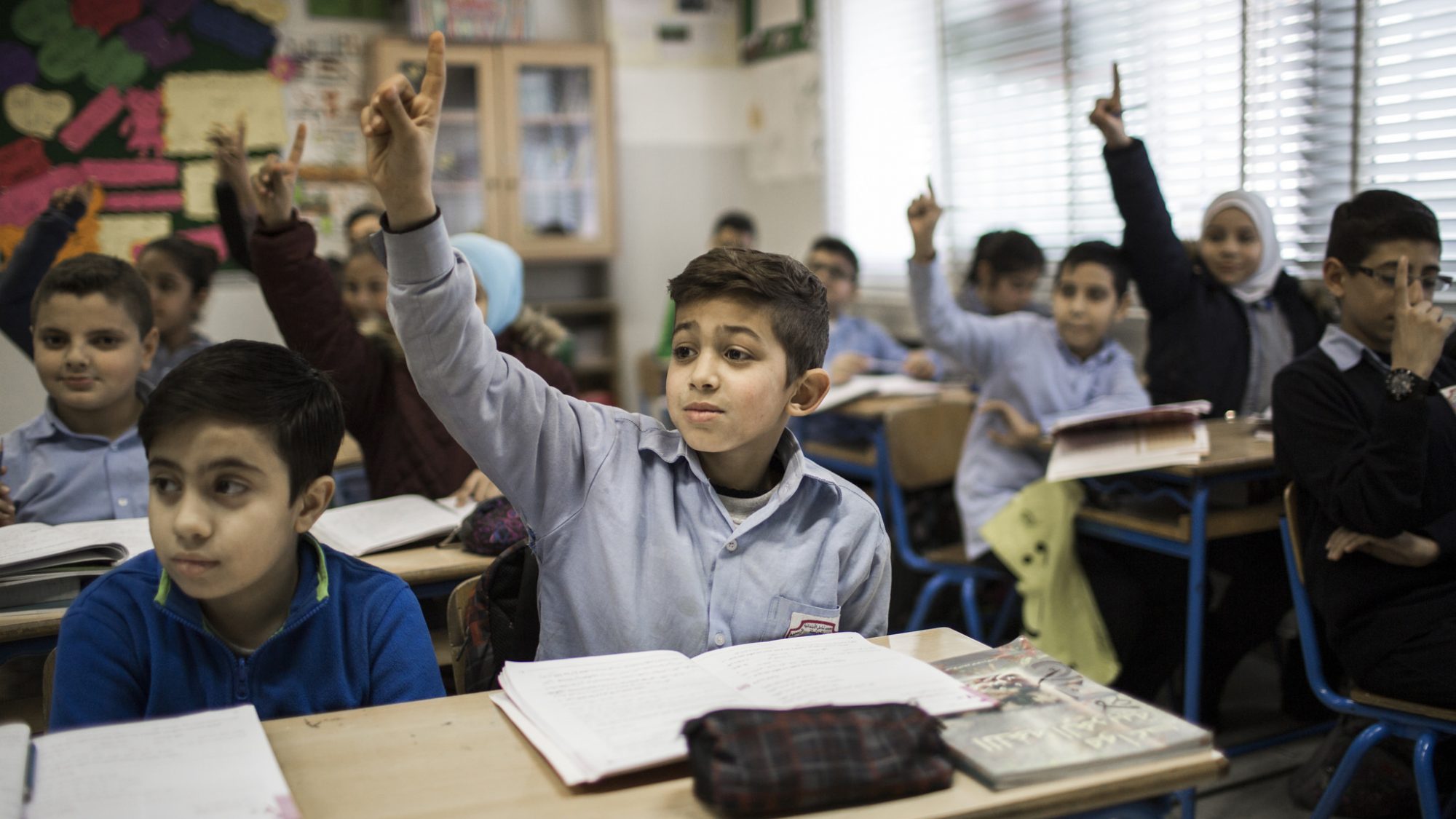
Title: Status of Education and Minorities Rights in Turkey
Because of a perceived existential threat to the Turkish state, the teaching of any language other than Turkish in the formal education system has historically been forbidden through targeted legislation, despite the fact that Turkey comprises many minority ethnic groups other than Turks. Guaranteeing the rights of minorities like the Kurds for native tongue education would ensure preserving the distinct identities of minorities and contribute to the resolution of the decades-long Turkish-Kurdish conflict. Potential solutions include establishing programs, hiring more qualified instructors, and encouraging pluralism and diversity in education.
Education in Turkey
The teaching and use of minority languages in Turkey have been a controversial issue in education, and the Turkish state has often violated minority language rights throughout the country’s history. These violations have particularly impacted the Kurdish people as the government has attempted linguistic and cultural genocide. Successive Turkish governments have considered the teaching of the Kurdish language as a divisive, existential threat rather than an instrument of unity and a symbol of the richness of the diversity of the Turkish state. Researchers have emphasized that this stance poses a problem for equal educational opportunities because they believe that mother tongue education is a fundamental human right. Political solutions are needed between Kurds and Turkish authorities, including the release of prisoners jailed for their Kurdish affiliations.
Turkey’s education system has been the state’s primary focus on one language instruction since the Turkish Republic’s secularist and nationalist modernization project beginning with the dissolution of the Ottoman Empire. The 1924 “Law of Unification of Instruction (LoUoI)” placed all schools under the control of the Milli Eğitim Bakanlığı or Ministry of National Education (MEB), promoting a centralized system in which the national government in Ankara steered most educational policies in Turkey. To this day, the MEB sets policies and oversees the administration of all stages and types of pre-tertiary education under the LoUoI. Education is free, and the MEB sets the curricula and prepares and approves the textbooks and teaching materials for teachers. Primary and secondary education for twelve years became compulsory for all citizens with legislation enacted in 2012, which has increasingly aligned the education system with a neoliberal policy program and a conservative religious ideology. These policies have led to serious inequalities in access to quality education for most, and the dominant religious ideology has diminished critical thinking at schools.
Historical Overview of Minorities and Kurdish Education Rights
The educational rights of the Kurdish people have long been a subject of controversy. Turkey is an ethnically and religiously diverse country with a cultural and ethnic mosaic comprising thirty-six different groups. Unfortunately, the state views Turkey’s unique cultural richness as a threat to the country’s existence and unity. Thus, the Republic of Turkey has maintained substantially restrictive policies on the rights of different ethnic groups. Present since the creation of the Turkish Republic, the Turkification movement has had adverse impacts on the language and cultural practices and education of the Kurds, the largest ethnic minority group, representing twenty percent of the population. Despite Turkey’s obligations under international law, the Turkification policy, when applied systematically, suppressed the rights of minorities.
The Lausanne Peace Treaty that the new Turkish state signed in 1923 provided limited protection of minorities’ rights. However, the Lausanne Treaty offered little protection to the Kurds, a majority of whom are Muslim, because it only guaranteed the protection of non-Muslim minorities. The treaty obliges Turkey to provide instruction in primary schools in minority languages in towns and districts where a considerable proportion of non-Muslim nationals reside. However, since Mustafa Kemal Atatürk and his cabinet members established the Turkish Republic in 1923, the oppression of the Kurdish language has remained part of the government’s agenda. The perception of the Kurdish language as hazardous has yielded grave consequences for generations of Kurdish people in accessing their fundamental rights, including education, in Turkey. Kurds have long faced systematic oppression and segregation within the educational system and society.
Following the military coup of 1980, the assimilationist policies of the Turkish regime reached new heights, and the government prohibited the Kurdish language in institutions and public and private life. Article forty-two of the new Constitution of 1982 proclaimed that “no language other than Turkish shall be taught as a mother tongue to Turkish citizens at any institutions of training or education.” Those speaking, publishing, or singing in Kurdish were arrested, tortured, or imprisoned as separatists. Consequently, many Kurds resorted to hiding their cultural, language, and ethnic identities. Such suppression has further exacerbated the Kurdish issue, producing significant economic, political, security, and social consequences.
In 1991, the Turkish government lifted the ban on using Kurdish. In 2002, Turkey came under the rule of the Justice and Development Party (Adalet ve Kalkınma Partisi, AKP), a political-Islamist party rooted in nationalist and religious ideologies. Educational reforms implemented in accordance with European Union (EU) standards and neoliberal policies characterized AKP rule from 2002 and 2007, and Turkey took several positive critical steps towards promoting democratic and universal values, integrating laws with European standards, and increasing prosperity and welfare in Turkish society.
For a brief time, Turkey became one of the most successful countries in reducing human rights violations and increasing democratic values. The democratizing reforms introduced resulted in significant changes concerning Kurdish education and cultural expression in Turkey. In 2003, the AKP government passed the Teaching in Different Languages and Dialects Traditionally Used by Turkish Citizens in their Daily Lives, enabling private education in the Kurdish language. In 2010, the government approved the teaching of the Kurdish language at Artuklu University in Mardin and several other higher education institutions in Kurdish regions. The AKP government added a course titled “Living Languages and Dialects” to the curriculum for two hours per week, resulting in the introduction of Kurdish as an elective class in MEB’s curriculum. During the 2012‐2013 academic year, schools started to offer Kurdish as an elective beginning from the fourth grade throughout the country. In March 2014, the government passed a democratization package allowing private schools to teach in Kurdish. Subsequently, the Turkish government and Kurds launched a peace process to stop the more than thirty-year-long conflict. The ongoing conflict resulted in more than forty thousand deaths among Kurdish Workers Party (PKK) members, who had waged an insurgency for greater cultural and political rights since 1984 against Turkish authorities
However, the unraveling of the democratization process began on May 27, 2013, following the Gezi Park protests. Although the protests began peacefully, they soon escalated into major violence. After losing its majority in parliament in the June 2015 general election, the AKP endeavored to regain nationalist votes, which entailed putting the Kurdish peace process into abeyance, committing human rights violations in Kurdish-majority regions of the country that were more resistant to Turkish nationalism, and heavily censoring Kurdish media and the Peoples’ Democratic Party (HDP). Measures implemented under the democratization package quickly unraveled as the AKP gained ultimate power and influence in the government and over Turkish civil society.
Democratization failed in full in the wake of the 2016 military coup, after which President Recep Tayyip Erdoğan launched a widespread rollback of academic and other liberties, systematically purging civic institutions of political opponents and critics that significantly harmed Kurdish interests. After the declaration of a State of Emergency (OHAL) following the failed coup attempt, Kurdish language teaching departments in universities were shuttered, NGOs working on the Kurdish language were closed, and Kurdish names were erased from southeastern cities. The government shut down several Kurdish teaching centers and associations. The government shut private schools in which Kurdish was the instructional language by force and terminated some Kurdish TV and radio channels.
More than twenty million Kurds have had their human right to be educated in their mother tongue that international human rights law requires usurped. Because political solutions are needed to solve educational problems, Turkey should immediately apply permanent legal arrangement plans and strategies related to the long-needed educational rights of Kurds. Because Turkey has failed to unilaterally resolve the Kurdish issue and issues related to other minority groups for a century, international human rights organizations and institutions, including the EU, must collaborate with Turkey in solving the issue.
Possible Solutions
Because Turkey is a multicultural society, faculties of education should develop multicultural education programs sensitive to other cultures and preparing teachers to teach people of different backgrounds. Turkey needs vital Kurdish-Turkish bilingual education to avoid inequality in the national educational discourse. Kurdish-Turkish bilingual education in universities and public schools must address issues of racism toward Kurdish communities. The lack of relevant professionals should be immediately resolved by creating Kurdish teaching departments. Public universities must find ways to recruit and prepare high-quality Kurdish-Turkish bilingual teachers to teach in schools throughout Turkey. Pluralism and diversity in education require autonomy in local governments and being more pluralistic rather than following LoUoI policy. With autonomy, each local government could develop an education program corresponding to local needs to shape language education.
Besides, government organizations, media outlets, and scholarly communities should encourage students by showing tolerance towards those with backgrounds different from their own, focusing on protecting every student’s cultural heritage and mother tongue.
Recognizing the right of Kurds to exist and guaranteeing their rights as an integral part of a multicultural Turkish society will not only ensure the preservation of the distinct identities of minorities but will also contribute to the resolution of the decades-long Turkish-Kurdish conflict. By recognizing that minorities can make unique and positive contributions to Turkish society and by fulfilling its obligations under international law, the Turkish government can create groundbreaking contributions to the nation and its citizens, including via the education system.
. . .
Hasan Aydin is a human rights defender and a Professor of Multicultural Education in the Department of Curriculum, Instruction, and Culture at Florida Gulf Coast University. He also serves as a director of Education and Youth Empowerment for the African Network of South-West Florida. His scholarship focuses on multicultural education, bilingual education, Kurdish language, and cultural rights, human rights, social justice, diversity and equity in education, educating refugee students, citizenship education in a global context, and international education. He is the author of several books and published numerous articles, has had many conference presentations. His most recent book (co-edited with Winston Langley) was Human Rights in Turkey: Assaults on Human Dignity, which Springer Press published. He is also a founding editor and editor-in-chief for the Journal of Ethnic and Cultural Studies and the American Journal of Qualitative Research, and an associate editor for Intercultural Education.
Recommended Articles

From the 1960s to the 1990s, the Danish government implemented the “Spiral Campaign,” a family planning policy that fitted four thousand and five hundred Inuit women and girls—many underage—with intrauterine…

This piece examines the UK government’s proscription of Palestine Action under the Terrorism Act, situating it within a broader trend of shrinking space for public dissent. It argues that the…

This article analyses the distortions of the International Humanitarian Law (IHL) notion of proportionality in the context of the Israel-Gaza war. It discusses Israel’s attempts to reinterpret proportionality to justify…